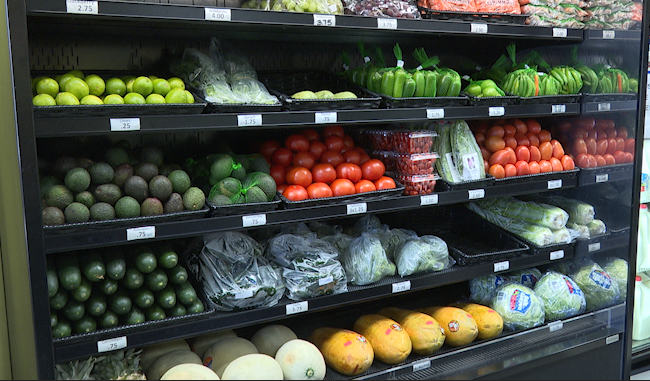Share this @internewscast.com

A small distribution site located in a San Diego strip mall, positioned between a Chinese eatery and an auto parts shop, features shelves and fridges filled with watermelons, potatoes, apples, and assorted fresh fruits and vegetables.
It’s a store where low-income families, single moms and pregnant women can purchase milk, eggs and produce for a relatively low price.
Robert, who runs the store, says their selections aren’t as abundant nor as fresh as they were at the start of the year.
“The produce that is coming in is overripe, they’re taking too long to pick it, it’s not being picked on time,” he said.
Robert attributes the shortage of farmworkers available for the harvest in California and across the U.S. to Immigration and Customs Enforcement raids, which leave farmers shorthanded, resulting in shortages and increased prices.
Most of the cops that are picked are being shipped to big supermarket chains or overseas.
But those who depend on surplus fruits and vegetables, such as food banks and distribution sites, are seeing fewer contributions coming in.
At the San Diego Food Bank, volunteers told partner Border Report, they are seeing less produce than in years past.
The food bank’s management opted not to discuss the fruit and vegetable scarcity at its centers or the impact of ICE raids aggravating the issue.
According to Robert, what arrives at his store lacks quality or freshness for the most part.
“The quality of the produce is very ripe,” Robert noted. “We’re facing challenges with obtaining produce, and when we do receive it, some arrives spoiled and perishes quickly, leading us to discard much of it due to spoilage.”
Robert went on to say that the lack of available fruits and vegetables is also creating higher prices at his store and others.
“We’re having fewer customers coming in.”
He expects shortages and increased costs for produce to remain as long as ICE raids continue.











